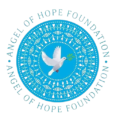education
empowering women through education
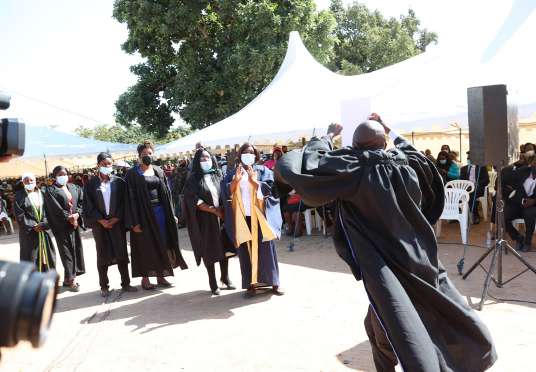
Education stands as a cornerstone of the First Lady’s initiatives, prioritized to uplift vulnerable communities. Collaborating with various international universities, Dr. Auxillia Mnangagwa has provided scholarships to academically gifted but disadvantaged students from all ten provinces of Zimbabwe. Additionally, partnerships with local institutions like the Zimbabwe Open University offer free short courses to marginalized groups, including persons with disabilities, former commercial sex workers, the elderly, widows, teenage mothers, and child-headed families.
Dr. Mnangagwa’s commitment extends to vulnerable children, exemplified by the transformation of a former refugee camp into the Dr. Auxillia Mnangagwa Children’s Home in Chiredzi. This state-of-the-art facility offers essential life skills alongside education, offering a renewed sense of hope to children living and working on the streets.

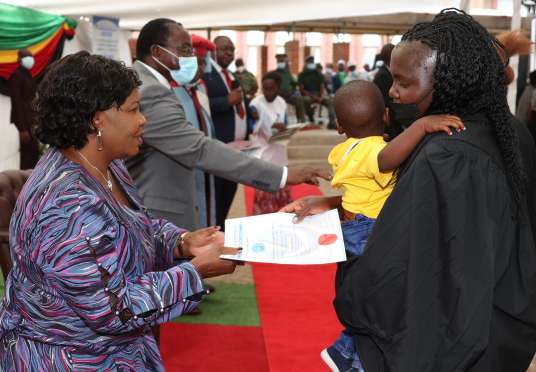
Recognizing the importance of nutrition in education, the First Lady introduced the School Feeding Programme. Learners from Early Childhood Development to grade three benefit from nutritious meals prepared by the community, overseen by Dr. Mnangagwa herself. Furthermore, initiatives like distributing reusable sanitary pads aim to alleviate menstrual hygiene poverty, thereby reducing school dropouts among young girls.
Through these comprehensive programs, Dr. Auxillia Mnangagwa addresses educational disparities and empowers vulnerable communities, ensuring that every child has access to quality education and the opportunity for a brighter future.
Elementary club targeting children


Recognizing children as the future pillars of society, Dr. Auxillia Mnangagwa initiates programs aimed at shaping responsible citizens from a young age. The First Lady’s Elementary Club targets primary school children, addressing critical issues such as teen pregnancies, drug abuse, relationships, family roles, attire, and parental respect. Emphasizing education as the cornerstone of a successful future, Amai Mnangagwa encourages students to prioritize their studies during interactive sessions.
The program provides a safe space for children to share personal experiences and challenges encountered both at home and in school, fostering open communication and support.
In response to rising moral decay influenced by foreign cultures and weakening family structures, Dr. Mnangagwa launched the Nharirire yeMusha program. This initiative focuses on defining the qualities of model individuals within society, aiming to restore moral values and strengthen community bonds.
Addressing prevalent societal issues such as drug abuse, gender-based violence, teen pregnancy, and child exploitation, Dr. Mnangagwa initiated a nationwide Male Engagement Program. This effort not only raises awareness but also encourages men to seek health services and speak out against abuse.




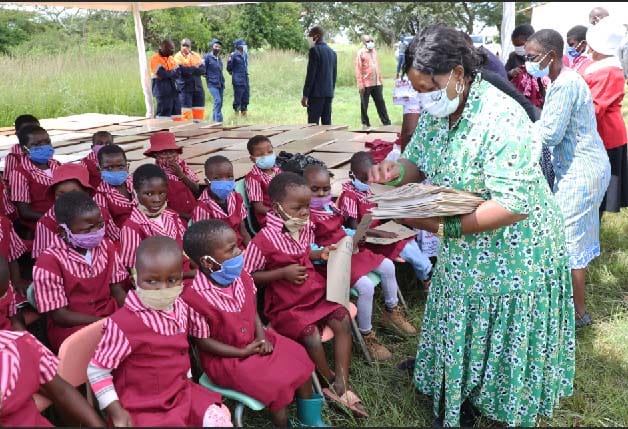
Promoting national identity and cultural preservation, Dr. Mnangagwa introduced the National Dress Fabric concept in 2020. Symbolizing Zimbabwe’s cultural heritage, the fabric incorporates national symbols such as the flag and the Zimbabwe bird, fostering a sense of pride and unity.
Acknowledging the challenges faced by the elderly, Amai Mnangagwa, alongside community members, conducts home visits to provide social protection. These visits involve performing household chores, cooking, and providing essential groceries, kitchen utensils, and blankets, ensuring the well-being of senior citizens.
empowering women through education
Education stands as a cornerstone of the First Lady’s initiatives, prioritized to uplift vulnerable communities. Collaborating with various international universities, Dr. Auxillia Mnangagwa has provided scholarships to academically gifted but disadvantaged students from all ten provinces of Zimbabwe. Additionally, partnerships with local institutions like the Zimbabwe Open University offer free short courses to marginalized groups, including persons with disabilities, former commercial sex workers, the elderly, widows, teenage mothers, and child-headed families.
Dr. Mnangagwa’s commitment extends to vulnerable children, exemplified by the transformation of a former refugee camp into the Dr. Auxillia Mnangagwa Children’s Home in Chiredzi. This state-of-the-art facility offers essential life skills alongside education, offering a renewed sense of hope to children living and working on the streets.

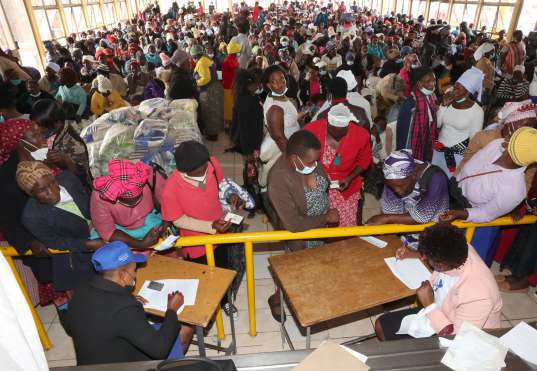
Recognizing the importance of nutrition in education, the First Lady introduced the School Feeding Programme. Learners from Early Childhood Development to grade three benefit from nutritious meals prepared by the community, overseen by Dr. Mnangagwa herself. Furthermore, initiatives like distributing reusable sanitary pads aim to alleviate menstrual hygiene poverty, thereby reducing school dropouts among young girls.
Through these comprehensive programs, Dr. Auxillia Mnangagwa addresses educational disparities and empowers vulnerable communities, ensuring that every child has access to quality education and the opportunity for a brighter future.
Elementary club targeting children
Recognizing children as the future pillars of society, Dr. Auxillia Mnangagwa initiates programs aimed at shaping responsible citizens from a young age. The First Lady’s Elementary Club targets primary school children, addressing critical issues such as teen pregnancies, drug abuse, relationships, family roles, attire, and parental respect. Emphasizing education as the cornerstone of a successful future, Amai Mnangagwa encourages students to prioritize their studies during interactive sessions.
The program provides a safe space for children to share personal experiences and challenges encountered both at home and in school, fostering open communication and support.
In response to rising moral decay influenced by foreign cultures and weakening family structures, Dr. Mnangagwa launched the Nharirire yeMusha program. This initiative focuses on defining the qualities of model individuals within society, aiming to restore moral values and strengthen community bonds.
Addressing prevalent societal issues such as drug abuse, gender-based violence, teen pregnancy, and child exploitation, Dr. Mnangagwa initiated a nationwide Male Engagement Program. This effort not only raises awareness but also encourages men to seek health services and speak out against abuse.
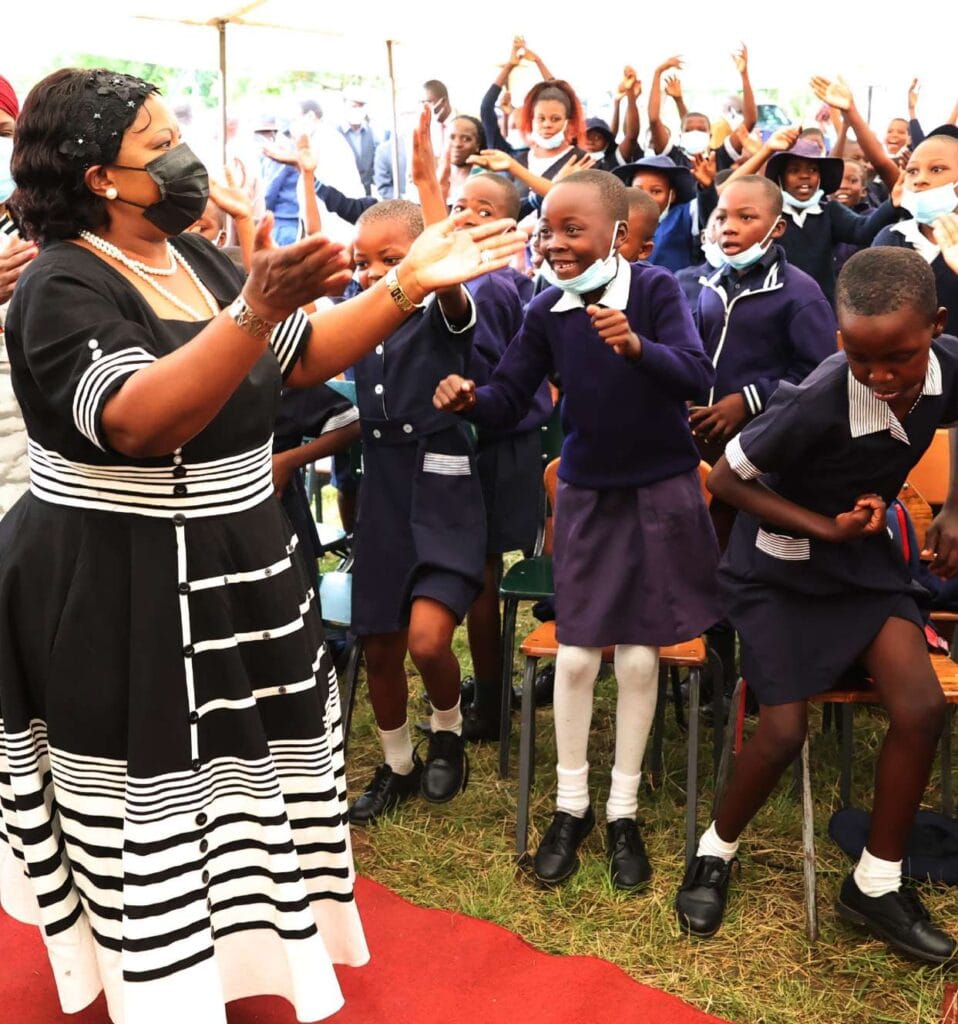

Promoting national identity and cultural preservation, Dr. Mnangagwa introduced the National Dress Fabric concept in 2020. Symbolizing Zimbabwe’s cultural heritage, the fabric incorporates national symbols such as the flag and the Zimbabwe bird, fostering a sense of pride and unity.
Acknowledging the challenges faced by the elderly, Amai Mnangagwa, alongside community members, conducts home visits to provide social protection. These visits involve performing household chores, cooking, and providing essential groceries, kitchen utensils, and blankets, ensuring the well-being of senior citizens.
